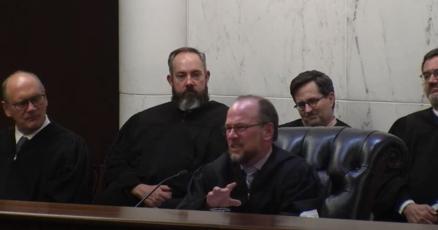Despite the acknowledgment by the state legislature that traumatic brain injuries increase the likelihood of involvement with the criminal justice system, the second-highest court in Colorado ruled on Thursday that such injuries do not constitute cruel and unusual punishment when imposing a life sentence.
Stanley Paul Jurgevich, currently serving a life sentence with the possibility of parole for the murder of George Salisbury III, argued that his sentence was disproportionately severe due to a traumatic brain injury sustained at the age of 11, which permanently altered his behavior.
Judge Timothy J. Schutz, writing for a three-judge panel of the Court of Appeals, highlighted that while the US Supreme Court has deemed certain punishments inappropriate for specific groups such as the insane, individuals with low IQs, and juveniles, there was no indication that Jurgevich’s traumatic brain injury made his sentence unconstitutional for a crime committed in adulthood.
The ruling in the case of People v. Jurgevich was delivered on April 11, 2024, in Routt County, with a unanimous 3-0 decision by Judges Timothy J. Schutz, Terry Fox, and Pax L. Moultrie.
Jurgevich had previously contested his conviction without success but filed a new petition in late 2021, arguing that his sentence violated the prohibition on cruel and unusual punishment by being grossly disproportionate.
In response to the growing awareness of the impact of traumatic brain injuries, a pilot program was established by the legislature to provide evaluation and support for a limited number of incarcerated individuals with such injuries. Studies, including one conducted by University of Denver professor Kim Gorgens, revealed that a significant percentage of adults in Colorado’s correctional facilities had experienced traumatic brain injuries, leading to challenges in self-regulation, judgment, and mental health.
Chief Judge Michael A. O’Hara III, while acknowledging the importance of evaluating and treating traumatic brain injuries, denied Jurgevich’s petition, noting the absence of specific legal provisions recognizing individuals with TBIs as a distinct class requiring unique sentencing considerations.
Jurgevich, in his appeal to the Court of Appeals, emphasized the advancements in neuroscience since his trial, drawing parallels between the diminished cognitive functions of individuals with traumatic brain injuries and children, who are considered less culpable due to their brain development stage.
The appellate panel, however, pointed out that while legislative changes had resulted in harsher penalties for first-degree murder convictions, there had been no specific adjustments addressing sentences for individuals with traumatic brain injuries, despite the establishment of the pilot program in 2021.
Jurgevich, currently 75 years old, will become eligible for parole in 2028 at the age of 80. The Court of Appeals concluded that while there is a heightened awareness of the challenges faced by individuals with TBIs, the legislation did not intend to categorically prohibit the sentence imposed on Jurgevich.
The case of People v. Jurgevich underscores the complex intersection of traumatic brain injuries, criminal justice, and sentencing considerations in the legal landscape.
